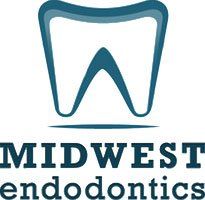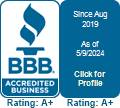Frequently Asked Questions
-
How long is a typical endodontic treatment appointment?
The length of an appointment can range from approximately 45 minutes to an hour and ten minutes. This time variation is related to the complexity of the treatment. Additional time is often needed for anesthesia, questions, and post-operative instructions.
-
Do endodontic procedures involve more than one appointment?
Most of our routine treatments are completed in one appointment. However, because of the inherent challenges associated with a particular tooth or diagnosis, we occasionally require two appointments to properly complete a treatment to conform to the standards of care.
-
Will I need to see my dentist for further treatment after my appointment at your office?
Usually, you will need to return to your dentist to place a crown or other restoration. However, if we are treating a previously crowned tooth or a front tooth, our office may be able to place the final restoration for your tooth.
-
Do you offer sedation if I am anxious regarding dental appointments?
We offer oral sedation utilizing a common anti-anxiety medication. Should this be a consideration regarding your treatment, we typically require an initial consultation appointment. This will allow us to review your medical history and assess your anxiety regarding prescribing the appropriate dosage of the medication.
-
Will you work with my dental insurance provider?
We are happy to process your dental claim for you. We will approximate your coverage and ask for your estimated co-payment to accept insurance. After receiving payment from your insurance provider, we will bill you for any outstanding balance. Regardless of your coverage situation, please remember that you are ultimately responsible for payment.
-
What Does My Insurance Cover?
Most allow an average yearly maximum of $1,000. Check with your dental insurance provider for details about your specific coverage.
-
What is recovery from a root canal therapy typically like?
When the local anesthetic has worn off, your tooth may be sore from the procedure. Your dentist may recommend a pain reliever to take at home and depending on the circumstances behind your root canal. Antibiotics may be prescribed to clear up any remaining infection in the tooth. If you were on antibiotics before the procedure, your dentist would instruct you to finish the remaining medication.
-
Dental Insurance - What is a Yearly Maximum?
The yearly maximum is the most money a dental insurance plan will payout within one full year. Depending on the dental insurance company, a yearly maximum could run on a calendar year (January to December), or a fiscal year. The yearly maximum will automatically renew every year. These will not roll over with most dental insurance companies if you have unused benefits.
-
Dental Insurance - What is Usual, Customary, and Reasonable?
Almost all dental insurance companies use a "usual, customary and reasonable" (U.C.R.) fee guide. This means that they set their price to allow for every dental procedure they cover. This is not based on what a dentist charges but on what the dental insurance company wishes to cover. For example, your dentist may charge $78 for a dental cleaning, but your insurance company will only allow $58 because that is the U.C.R. fee that they have set.
If you visit a dentist contracted with your dental insurance plan, you should not be charged the difference between these two prices. A contracted dentist generally has an agreement with the dental insurance company to write off the difference in charges. If the policy allows you to go to a dentist of your choice, check the insurance company's U.C.R. fee guide against the dentist's fees. You may be required to pay the difference out of your pocket. However, you cannot put a price tag on quality dental care.
Important Notice
PLEASE NOTE: ANSWERS PROVIDED HERE ARE NOT MEDICAL ADVICE. They are provided for informational purposes only. Actual medical advice can only be provided after consultation by a doctor in our office.



